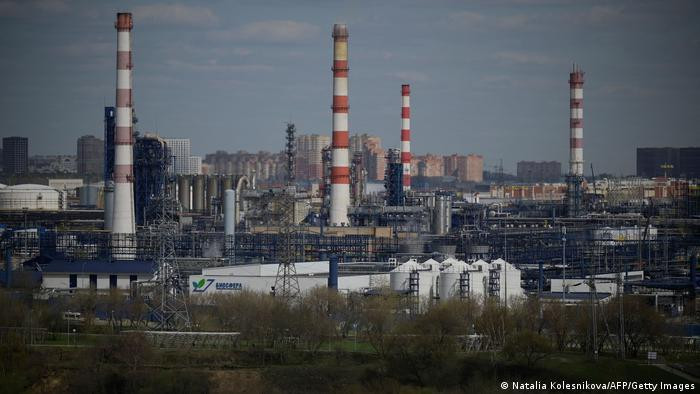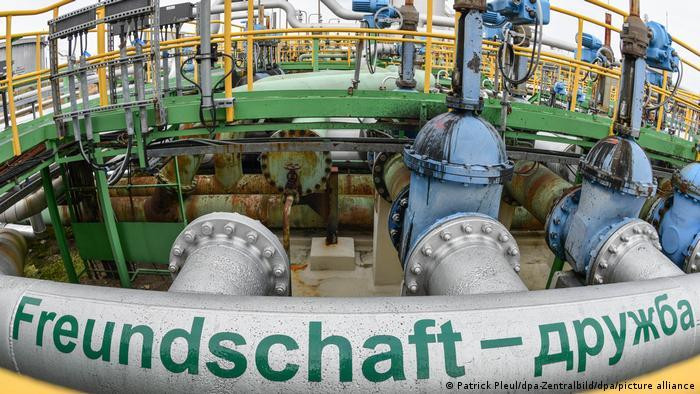How does the EU hit Russia's revenue?
(Baonghean.vn) - The European Union (EU) and the G7 are working together to implement a price ceiling on crude oil originating from Russia. This intention is encouraged by Western media as it should be applied as widely as possible on a global scale to limit the Kremlin's revenue.
 |
EU measures will restrict banks, insurers and shipping companies from dealing in Russian gas. Photo: AFP |
To limit the flow of money into Russian pockets, the EU intends to ensure that Moscow can only export oil via tankers at discounted prices. All oil exports, including to China and India, will be affected by the measure. This is a similar move to the G7 decision this summer. The EU has included a price cap in its eighth package of sanctions since Russia launched its military campaign in Ukraine.
How to deploy
From December 5, the EU and G7 countries will ban banks from financing the purchase and sale of Russian oil, insurers from insuring shipments, and ports from unloading tankers if they are bought and sold at prices higher than those set by the EU. An embargo on all services related to oil exports is also expected to make shipping virtually impossible.
What will the ceiling price be?
The exact figures have not been determined, according to the European Commission (EC). However, the EU executive body estimates that the price must be much lower than the current market price and close to the price before Russia launched its operation in Ukraine. EU member states are still discussing and have not voted for or against the embargo.
Russia vStill allowed to export oil?
From December 5, the ban on imports of Russian oil supplied by tankers will apply only to the EU and G7 countries. Other countries will still be able to buy Russian oil, but at a fixed maximum price.
Ship cEU still allowed to transport Russian oil?
Countries with ocean-going tanker lines, such as Greece, Cyprus and Malta, can ensure that their vessels will be allowed to continue carrying oil if they are traded at the ceiling price. EU ships sailing under flags such as Panama or Liberia will also be subject to the sanctions. The EU and the US are trying to pressure countries to adopt the practice, and could impose sanctions if they do not cooperate more with sanctions against Russia.
What about Balkan oil supplies?
Russian oil destined for Serbia and other Balkan countries is currently unloaded in EU member Croatia, as Serbia has no ports. If sanctions are passed, this will theoretically no longer be allowed from December 5. Despite being a candidate for EU membership, Serbia has not yet joined the sanctions against Russia. The EU will have to decide whether Croatia can continue supplying Serbia and other Balkan countries. Either way, the price cap will have to be observed.
What about Russian oil delivered by pipeline?
There will be no embargo on pipeline oil because Hungary, the Czech Republic, and Slovakia currently receive oil from Russia via the Druzhba, or Friendship, pipeline. While Poland and Germany also have access to oil through the pipeline, they will voluntarily opt out in the future to limit Russia’s profits. The price cap will not apply to pipeline oil.
 |
Poland, Germany and the Czech Republic receive Russian oil via the Friendship pipeline. Photo: dpa |
What were the reactions?
Russia has strongly condemned the EU price cap and has now said it will not supply oil to any country that imposes one. “Such a tool disrupts all market mechanisms and could have a very negative impact on the global oil industry,” Russian Deputy Prime Minister Alexander Novak said on television.
At an energy industry event in London, Patrick Pouyanne, CEO of French oil giant Total, also warned against price caps. “I think it’s a bad idea. In fact, it’s a way to hand the reins back to Vladimir Putin, and I would never do that.”








